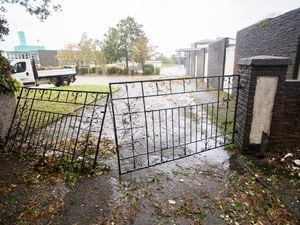‘States must work together to help special needs education’
CAMPAIGNERS have called for systemic change to special needs education in Guernsey schools, after an independent report found that the provision was inconsistent and some families were struggling to get their children’s needs met.

The review concluded that while there was substantial effective practice to support pupils with special educational needs and disabilities, it was patchy and there was an over-reliance on the goodwill of key individuals.
Catherine Hall, the Guernsey branch officer of the National Autistic Society, was heartened by the report’s findings because she said it highlighted the issues that families had raised for years.
In total, 18 recommendations were made by the independent reviewers, and Mrs Hall flagged up one in particular, which advised that there should be greater strategic and operational alignment between States departments.
‘That’s probably one of the most challenging, but one of the most important, and it’s not entirely within Education’s gift because it does involve collaborative working across committees because many children need support from other services, other than those provided in Education, and that is where it has always been very difficult.
‘So I think that’s one of the hardest things to solve, but probably one of the most important to get right.’
‘A lot of it requires additional resources, it’s a massive piece of work, it isn’t going to be fixed overnight, so I hope that the whole of the States will take it on-board and get behind it, and not see this as a peripheral issue to say sorting out secondary education, or re-writing the education law.
‘This is a vital part of all of that.’
The overall proportion of pupils with special educational needs and disability (Send) in Guernsey primary schools is between 22 and 23%, and that figure goes up in secondary schools to between 24 and 26%.
There is often a perception that Les Voies and Les Murier Schools and the autism bases cover all Send pupils, but the reality is that the majority are in mainstream schools and mainstream classes.
Mrs Hall said this underlined why Send provision needed to be viewed as integral to schools, and not something on the fringes.
The 132-page report was released yesterday, with lots of dense statistics and findings, and Carol Le Page, the social policy director at the Guernsey Disability Alliance, was beginning to pick through it.
She was impressed at the ‘constructive and professional’ way that it had been carried out, and delighted to hear that the Committee for Education, Sport & Culture had committed itself to implementing all 18 of the recommendations.
‘We need systemic change rather than the current set-up where there’s some great practice but it’s relying on some individuals’ goodwill, and that might not be replicated in all schools.
‘So we need the best system-wide approach for all of our learners, not just in a school where they may be a great relationship between different partners, so I think that is a great recommendation and it’s certainly one that will be achievable, but it’s always tricky when there is more than one department involved.’





